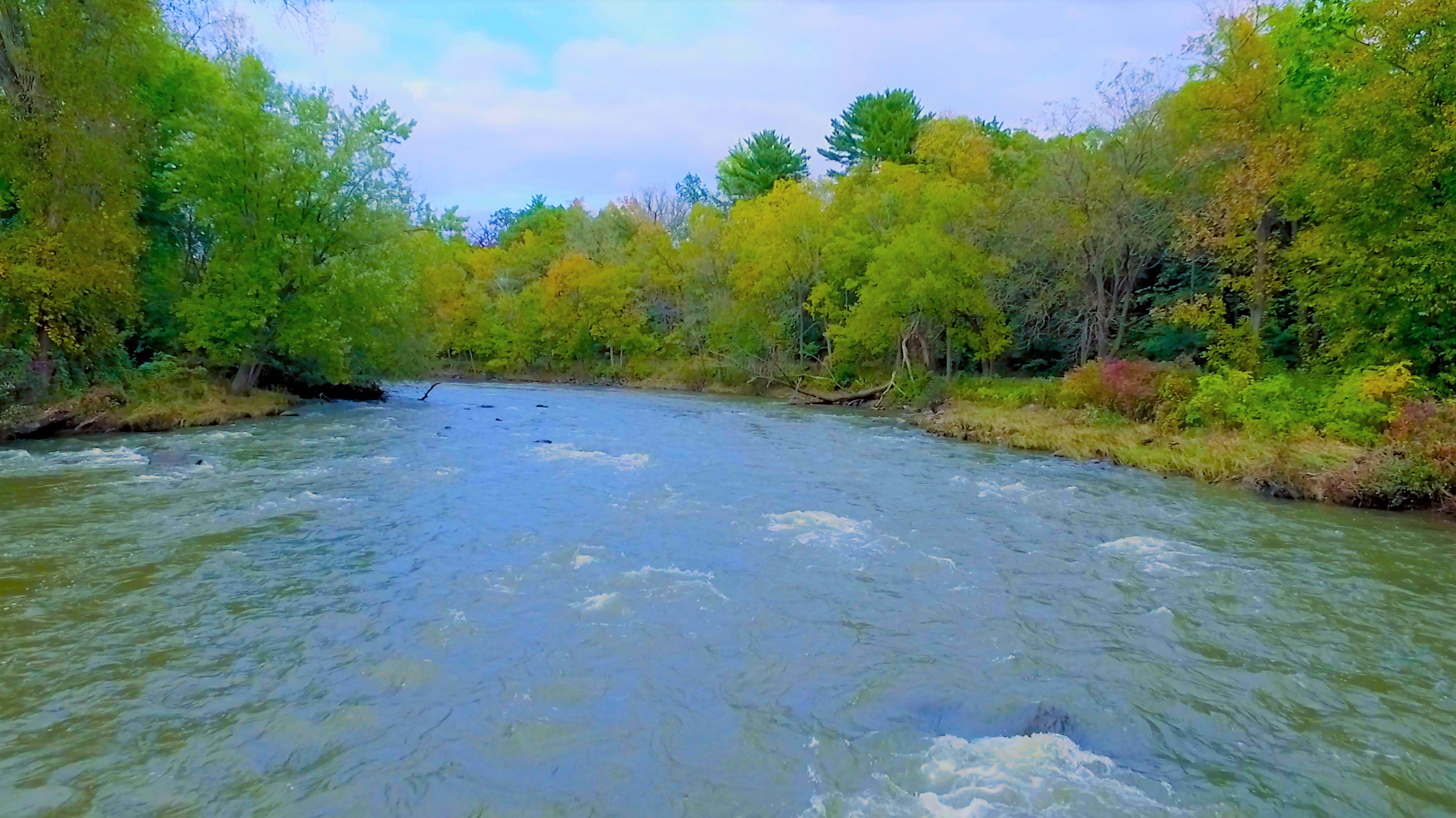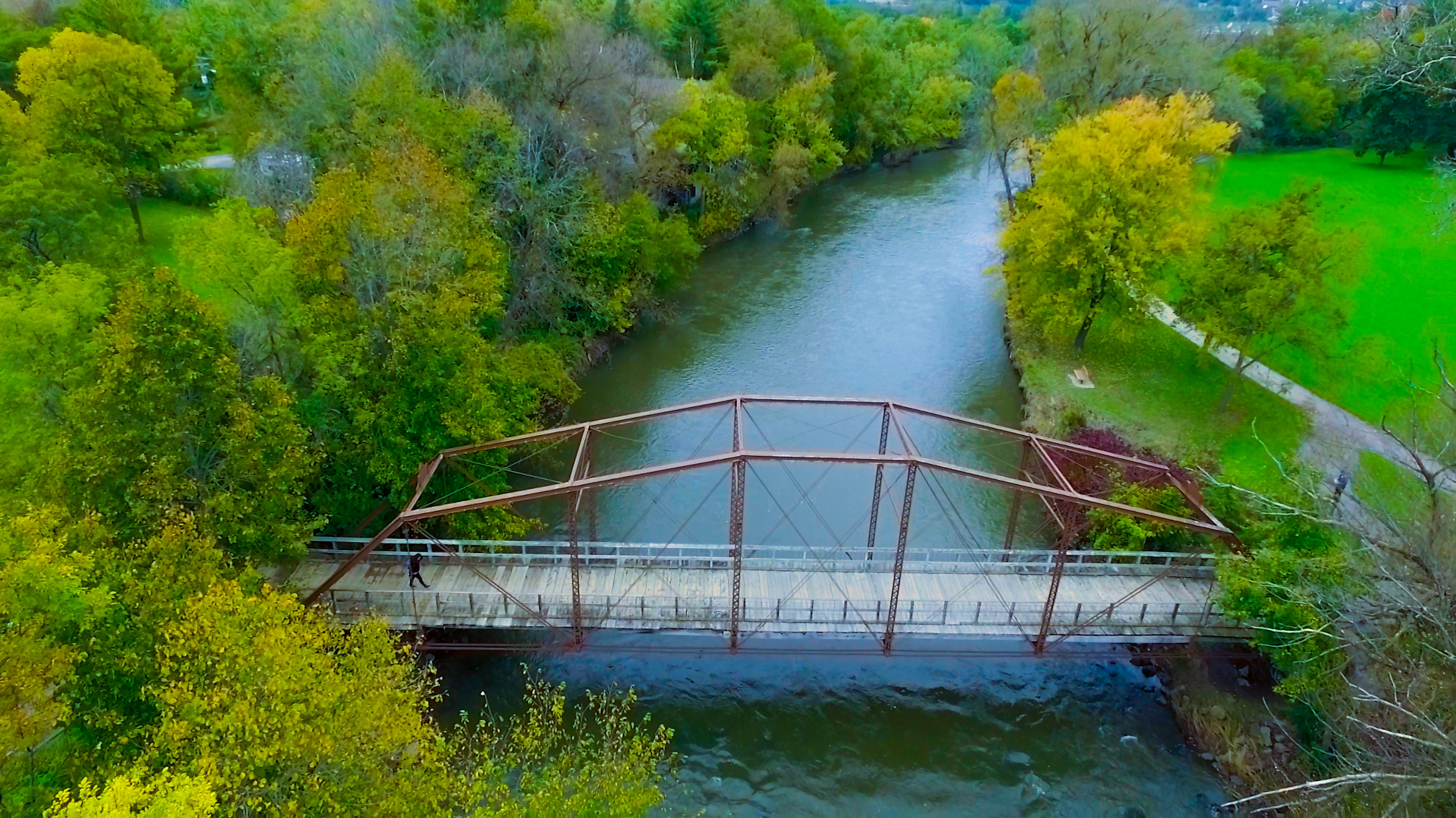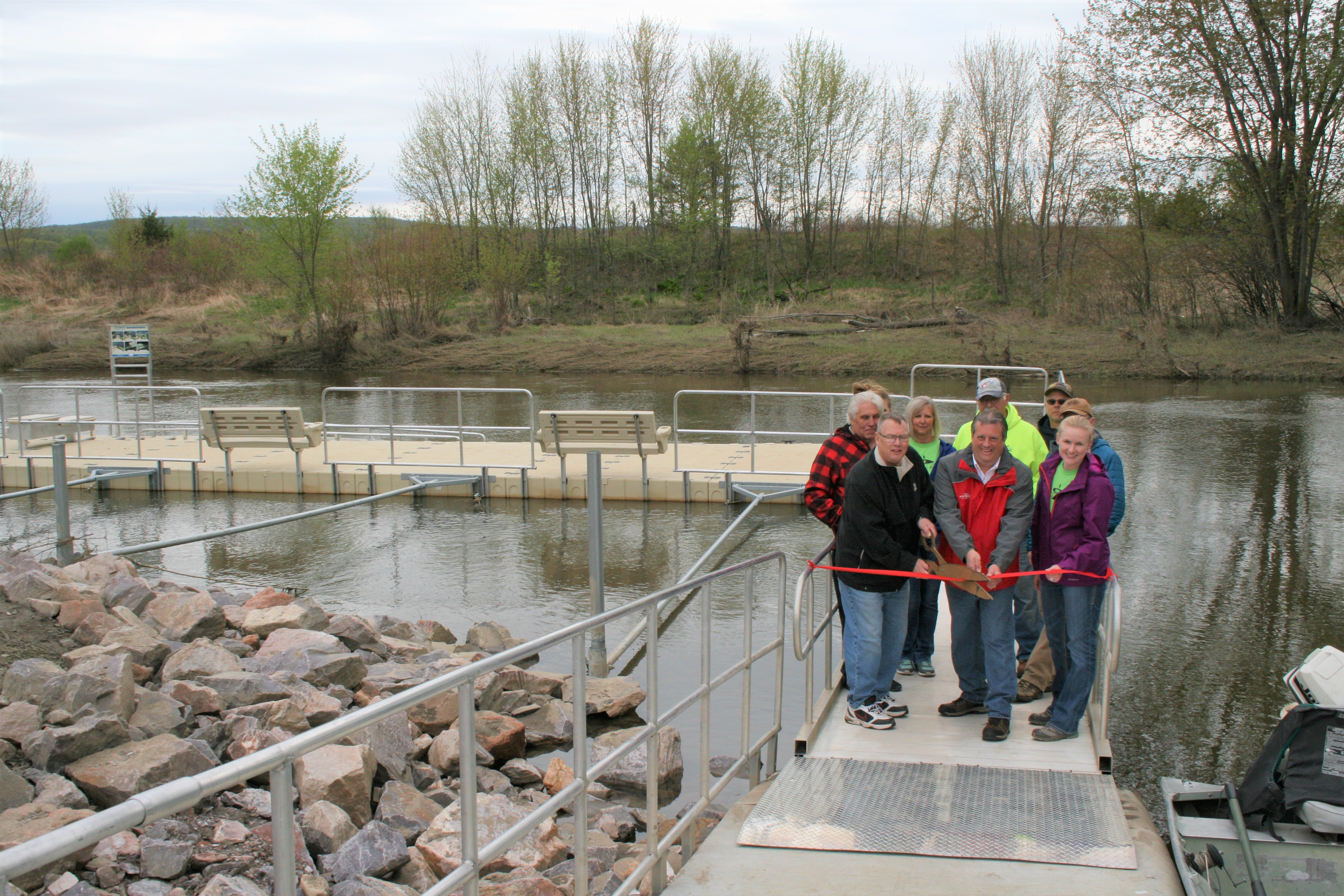This is a story about a river, once frozen in an ancient glacial lake, turned loose when the ice dam holding it back collapsed, causing a cataclysmic draining of the lake and carving out spectacular rock outcroppings and gorges.
As the turbulence diminished, a tranquil river emerged from pristine cold-water limestone springs. The Baraboo River now flourishes as it travels approximately 120 miles before joining the Wisconsin and Mississippi Rivers, ultimately reaching its destination in the Gulf of Mexico.
The river once attracted Native American mound builders to settle along its banks for natural resources, where they created hundreds of animal and human-shaped effigy mounds. Later, European settlers begin building milling dams and harnessing the river. Around the turn of the 21st century, the river was once again set free when the last of the dams were removed. It became the longest restored free-flowing river in America.

Recognizing a Golden Opportunity
A little over a decade later, the communities of West Baraboo, City of Baraboo, Village of North Freedom and Sauk County in south-central Wisconsin recognized the potential to join in a multi-municipality agreement and hired MSA to begin planning and designing the river corridor. The Phase I plan, led by Raine Gardner and Jason Valerius, resulted in a recommendation to restore, protect and enhance the river by establishing it as a premier destination for paddling and fishing.
Fred Lochner then joined MSA as a consultant, with a fair amount of prior experience helping to develop outdoor destinations. Fred helped champion the development of a nonprofit organization dedicated to providing fundraising and volunteer support for the goals and objectives identified in the Baraboo River Corridor Plan. He also assisted local and regional corridor municipalities apply for and receive a $250,000 grant from an environmental impact fund—money acquired from the purchase of a permit to build a new transmission line crossing the county.
As a result, the Friends of the Baraboo River Inc. was established and recognized by project partners as the 501(c)(3) organization of record, dedicated to developing funding and volunteer support for the Baraboo River Corridor plan. With assistance from MSA funding experts, nearly $1 million in grant funding was secured. The Friends group also received a grant from the Wisconsin Department of Tourism to study the Baraboo River Corridor’s potential to become a premier outdoor recreational destination. The study conducted by MSA reported that nearly three million people were already visiting the corridor annually, namely at Devils Lake State Park, with an exploding urban population within day-trip distance at over twenty million. The study also revealed that an urban migration had taken place and left behind aging rural communities struggling to remain vibrant. All of this pointed to a significant opportunity for economic impact from increased nature-based tourism in the region. It also revealed a great need for ADA-compliant boat launches along the river and created the idea of striving to make the Baraboo River the first fully-accessible national water trail in America.

Gaining Momentum
With the success of Phase I, communities up river began to take notice. The City of Reedsburg reached out to retain the services of MSA to begin development of Phase II, and the remainder of communities up river were informed about the progress. As a result, Rock Springs, Reedsburg, LaValle, Wonewoc, Hillsboro, Union Center and Elroy—along with the Counties of Juneau and Sauk—all joined as stakeholders in Phase II of the river project. It was an impressive and almost unprecedented collaboration. The goal of becoming the first fully accessible national water trail was solidified and Phase II planning quickly commenced.
The Baraboo River project is proving to be a highly exciting, fulfilling and collaborative success story. There have been many hurdles along the way, and likely will be many more. However, the momentum and enthusiasm for this cause are sure to create profound positive impacts to communities along the Baraboo River corridor and ensure its place as a premier outdoor recreational destination for generations to come. Project partners, citizens and supports were thrilled to participate in the Paddle the Boo and Ribbon Cutting event mid-May, celebrating the opening of the new ADA-accessible boat launch in North Freedom. We look forward to many similar celebrations to come!

